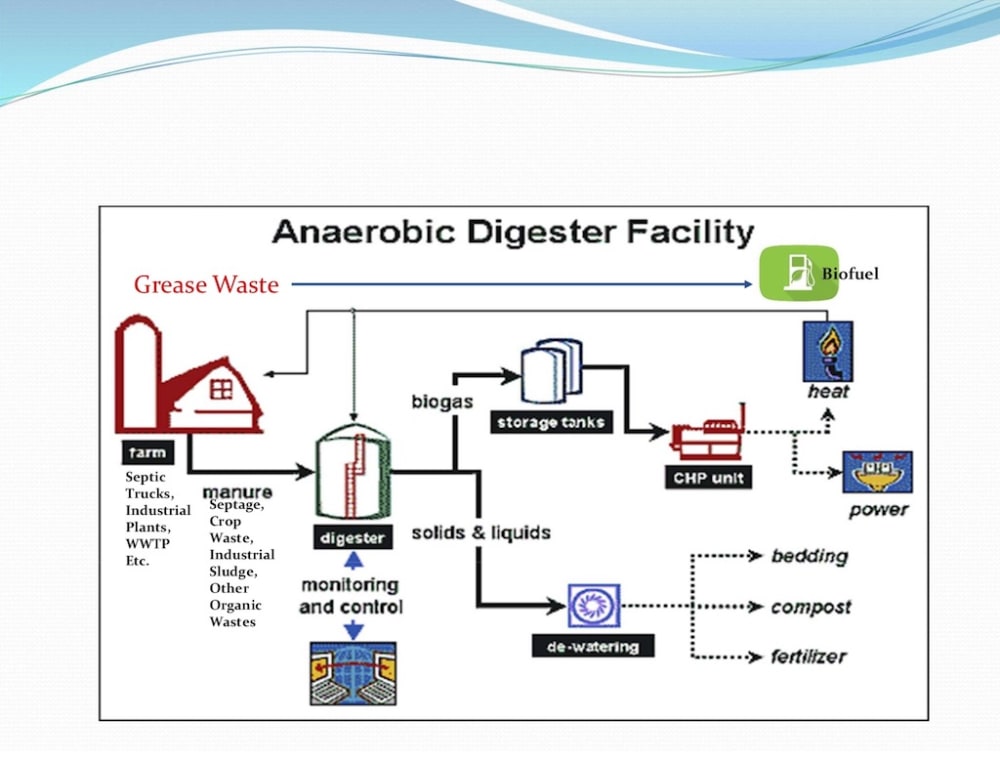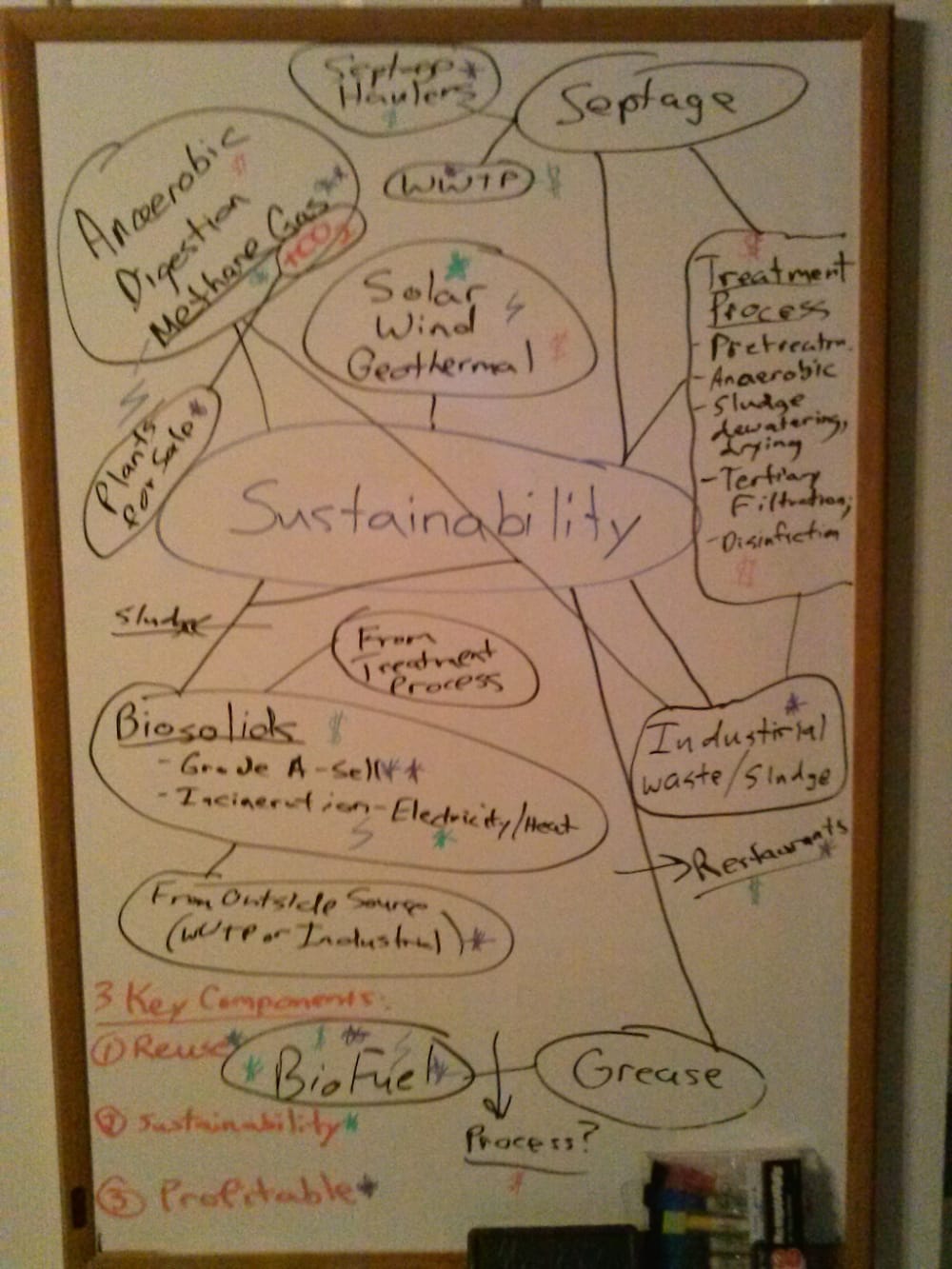The concept is based around septage waste but can utilize other wastes such as manure, grease, crop waste, etc. The system would utilize existing technologies in a way to treat waste with three core objectives: the system would be self-sustaining requiring no external power or water supply, removing recyclable or reusable material from the waste stream for reuse, and sustain a profit. The system and processes are based around a typical anaerobic digestion waste treatment process, utilizing sustainability practices and further refining technologies to process the waste into reusable materials, such as; biogas, biofuel, biosolids (sludge), clean effluent water. All of these byproducts could be utilized on-site and/or sold for profit.
This innovation of this idea is not the individual technologies or processes but the culmination of the system to be self-sustaining and profit oriented all on otherwise wasted materials. The system would utilize the byproducts of the treatment of the incoming waste to power the system and the remaining would be sold for a profit. Any additional energy required would come from green technologies such as solar, wind, and geothermal. Profit would also be made through fees for accepting the waste (from septic haulers, municipalities, restaurants (for grease), any industries that need to dispose of organic waste, etc.).
A small scale pilot facility could be first built to prove the design, effectiveness, profitability, and sustainability. Government and University grants could be used to help with the capital costs associated with equipment and construction required. The plant could be utilized as a teaching and hands-on learning opportunity for students to learn about sustainability and green technologies.
Another major benefit of this concept is it's capability to set an example on utilizing waste to energy practices, reducing the amount of waste sent to landfills and pollution. Just as an example the United States currently only recycles approximately 45% of it municipal waste, whereas Sweden recycles 99%: therefore, the technologies and processes are viable. Moreover, The cost of this Municipal Solid Waste is approximately $21.23 per pound, and an average person produces approximately 4.5 pounds of it a day, that is almost $100/day per person.
Like this entry?
-
About the Entrant
- Name:Kirk Newcomb
- Type of entry:individual
- Patent status:none





